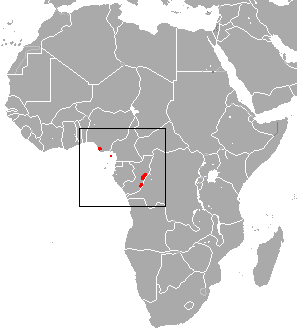Facts About Central (Zanzibar) Red Colobus
Pennant's colobus, also known as Pennant's red colobus, is a fascinating arboreal primate native to the lush forests of tropical Central Africa. This unique animal belongs to the Cercopithecidae family and currently faces serious threats due to habitat loss and hunting for bushmeat.
There are three recognized subspecies of Pennant's red colobus, each inhabiting different regions: the Bioko red colobus on Bioko Island, the Niger Delta red colobus in Nigeria, and Bouvier's red colobus in the Republic of Congo. Recent taxonomic updates have refined our understanding of these subspecies and their distributions.
The name "colobus" derives from the Greek word meaning "he cut short" referring to these primates' lack of an opposable thumb. Instead, they have evolved long, hook-like fingers that are perfect for climbing trees. These moderately-sized primates exhibit specific physical traits and color variations depending on the subspecies. They thrive in the treetops, feeding mainly on leaves, flowers, fruits, and seeds.
Pennant's red colobus is found in various parts of western Central Africa, but their populations are declining due to habitat destruction and other anthropogenic activities. The conservation status of these subspecies is alarming: the main subspecies is listed as "Endangered" while others are classified as "Critically Endangered" on the IUCN Red List. Notably, Bouvier's red colobus was thought to be extinct until its rediscovery in 2015, underscoring its precarious situation.

 Chad
Chad